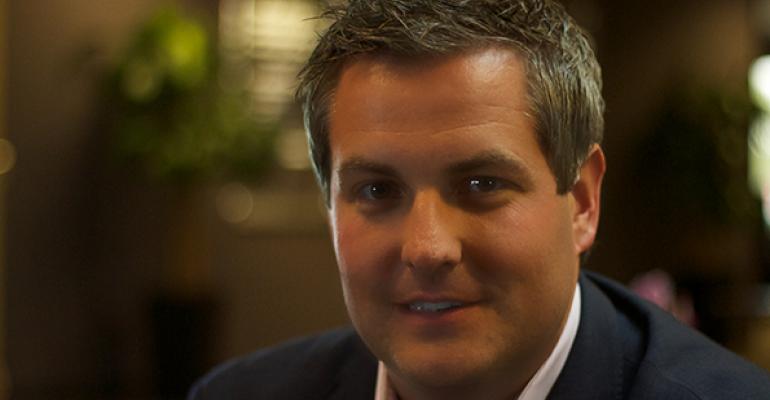KBP Foods Inc., recently completed a management-led buyout of its private equity owners, Boyne Capital, in a deal that will enable the company to double the number of senior managers with ownership in the business.
“For us it’s great,” Michael Kulp, CEO of the Overland Park, Kan-based KFC and Taco Bell franchisee, said this week. “We’re bringing key members of our management team involved in the equity side of the business. That helps create wealth for their futures and for their families.”
Yet, just because management has bought out private equity doesn’t mean the company is about to slow its remarkable growth.
KBP has quadrupled in size in the four years under Boyne’s ownership, and now has 223 locations in the Midwest and Southeast. Most of those locations are KFC units, but the company also owns Taco Bell and Long John Silver’s locations.
KBP already has deals in place for 54 locations, and expects to end the year with at least 278 units, Kulp said. He expects growth to continue for the next few years.
“Our goal is to double the size of the business in five years,” Kulp said.
If the company continues buying 50 units a year for the next five years, he said, it would have about 550 locations and $600 million in revenue.
With those growth projections and a strong recent track record, KBP did not have trouble finding potential investors for its buyout. Many private-equity firms and other investors are eager to fund large, growing franchisees. The operator initially had a dozen investors interested in the deal.
That enabled KBP to be choosy about its investors. The company chose three investors, who each offered a small amount, to provide the franchisee with the ability to enable future growth.
The investors are all Small Business Investment Companies — professionally managed investment funds that work with the U.S. Small Business Administration to fund small businesses.
The deal illustrates a growing trend in the franchise business. At a time when private equity has been pumping dollars into large-scale franchisees, a few management teams at large operators have been looking for alternatives. For instance, the Ontario Teachers’ Pension Plan invested $300 million in Flynn Restaurant Group last year.
Such investors have longer time horizons, and they don’t charge management fees like many private-equity funds do.
In KBP’s situation, the investors were only looking for minority investments, enabling management to regain control of the company.
In addition, the low cost of debt enabled management to borrow at low rates to fund the deal.
“It was the perfect storm, with the capital markets being right, our success at growing and the stability of the business,” Kulp said. “We were able to go out and find partners in a minority capacity and take over majority control of the business.”
The company expects to be able to grow in part because 150 of its units are in the KFC system, which has largely avoided the consolidation wave that hit many franchised systems in recent years. KFC has a large number of legacy operators that may look to sell in future years, which could provide a springboard for KBP’s continued growth.
“It’s a brand that’s ripe for some consolidation,” Kulp said.
"A big three years"
Kulp joined KBP in 2000, when it was known as Zancanelli Management Corp. and had just 12 KFC locations in western Colorado. The company grew to 65 units by late 2009, when the original owners looked to sell their interest in the company. The next year, Boyne bought a controlling interest and Kulp remained.
KBP then began acquiring KFC units. The chain’s sales struggled in the aftermath of the recession, and prices for many locations were relatively low.
“There aren’t a lot of big, institutional, sophisticated operators in the system,” Kulp said. “It’s a challenging system to operate. It takes a grassroots, on-the-ground, hands-on restaurant approach to be good inside the business.”
Kulp said many locations have gone too long without investment in assets and infrastructure. The company looks for acquisitions in which sales are strong, but where it only needs to make a few changes to improve profitability.
“We’re seeing deals where we’re paying what the seller feels is a fair multiple,” Kulp said.
But with reinvestment in assets, infrastructure and people using the company’s financial model, profits improve and the sale price looks better.
Currently, KFC has a lot of momentum. The chain’s same-store sales have improved in recent quarters, including a 7-percent increase in the first quarter this year. In February, the franchisor pledged to invest $185 million in the brand over the next three years.
“It’s going to be a big three years,” Kulp said.
He noted that the addition of more advertising dollars behind the brand could radically change its image with the consumer.
“This is my 14th year I’ve been involved with the brand,” Kulp said. “There’ve been some good years and some not-so-good years. KFC can be a difficult brand to operate. But when the brand is done right, there is a ton of opportunities for growth.”
Contact Jonathan Maze at [email protected].
Follow him on Twitter: @jonathanmaze





